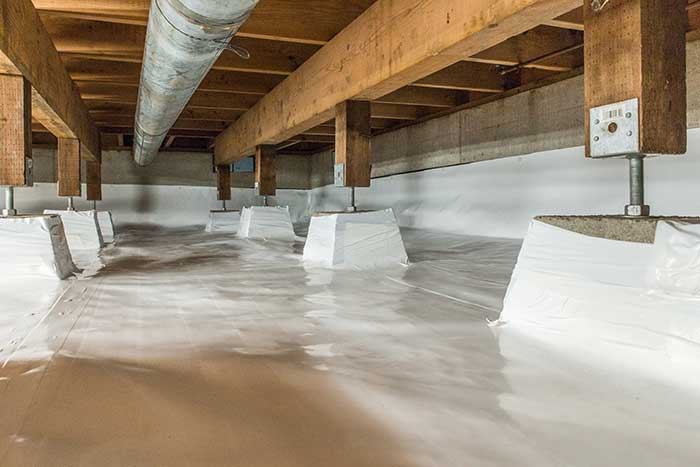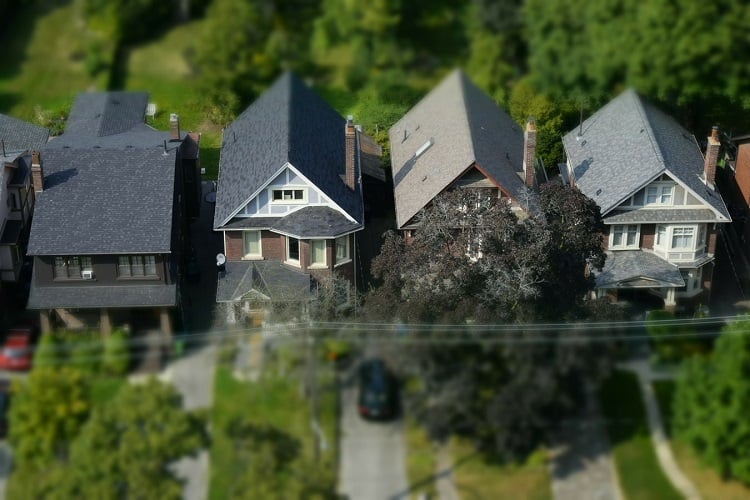The hollow area under the floors of a house set between the ground and the first floor is known as a crawl space.
Why the bug-like name? Because it literally provides only enough room to crawl, with its very low ceiling making it impossible for someone (regardless of height) to stand.
The core role of a crawl space is to elevate the base of your house, and it’s common for homes without a basement.
Its layout, placement, and role — providing access to electrical wiring, duct work, insulation, and plumbing — have often made people refer to it as the gut of the property; and that’s quite appropriate since whatever goes on in the gut of your home – the crawl space – tends to affect the overall health of your home.
When the crawl space is neglected and left to fall into a state of disrepair, it can have all sorts of implications for your household.
This is why, particularly when purchasing property, but even after you’ve become the owner, you need to ensure that your crawl space is properly looked after and well maintained.
In order to avoid problems and headaches in the future, you should always inspect a home to see if there has been any crawl space damage before making an offer on a property.
After the purchase, you can then get hints and tips from experts that will enable you to look after your crawl space properly in order to minimize problems.

What problems can arise in homes with crawl spaces?
There are lots of issues that can arise as a result of a crawl space that is in bad condition and has fallen into a state of disrepair. Some of the main ones that can affect your home, your living conditions, and even your health, include:
Mold and damp spreading in your property
One of the huge problems that can stem from crawl space neglect in your home is the spread of dampness and mold. Anyone who has ever experienced problems with mold will know just how difficult it can be to get rid of once it takes hold.
In addition, it can result in a range of other problems. It can play havoc with your health and can be particularly hazardous if there are people in the home with allergies and respiratory conditions.
Not to mention that visible mold is incredibly unappealing, and your energy bills could rocket as you try to keep your home dry and warm.
A great way to prevent this from happening is to seal and isolate all potential breaches in the foundation of your home, in order to prevent water infiltration.
Trending stories
- Most expensive rapper houses
- 5 New York-area castles to visit
- The history of Hearst Castle in San Simeon
The need for this is considerably higher in areas that are at risk for flooding — and if you’re considering buying a home with a crawl space, you should definitely factor in the weather in your area.
Another great solution is to install a heating system to help you monitor and control the temperature in your crawl space, which can also help fight the excess humidity and avoid drastic temperature changes between seasons.
Pests invading your home
When you are relaxing at home, the last thing you want is an army of pests taking over, but this is one risk you’re exposing your household to if your crawl space is not looked after.
Pests love to breed in damp, humid places and a neglected crawl space provides the perfect environment.
Once they breed, they will infest areas such as immediately outside your home and even inside your property. This will bring down hygiene levels, cause a lot of stress, and could be very costly to get rid of.
One way to protect your household from that is to insulate your crawl space. Something better left to the professionals, insulation often calls for the use of closed cell, spray foam that will act as both a vapor barrier and insulation.
Causing structural damage to your property
If your crawl space is not looked after, pools of standing water can be left there to turn stagnant.
As time goes on, these can start to eat away at the wooden supports of your home and rot them, which then impacts the structural stability of your home.
This is best avoided by having the crawl space properly inspected before purchase, and maintained accordingly after you buy the home.
This is one key aspect you will have to pay attention to as an owner of a home with a crawl space, just like you would make sure the roof is intact to prevent any leaks and further damage.
More tips for potential homeowners
Buying a House in a Neighborhood with an HOA
Do You Pay Taxes When Selling Your House?
5 Things You Need to Know About When Selling Your Land to Developers
Can You Sell a House and Buy Another at the Same Time?




